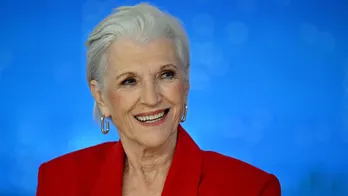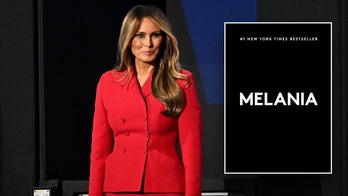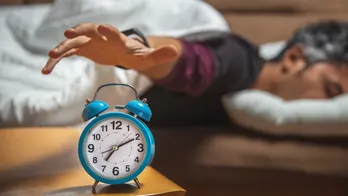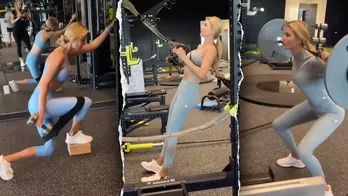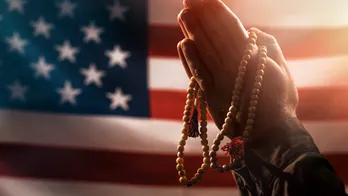FDA approves a new antibody drug to prevent RSV in babies
This fall, for the first time many babies in the U.S. will be able to get a shot to fend off RSV, a respiratory virus that can cause serious lung disease in infants and young children.
The Food and Drug Administration Monday approved nirsevimab, a single shot of antibodies that was shown in clinical trials to lower the need for medical care from RSV for babies by 70-75%.
Respiratory syncytial virus, or RSV is a viral infection that puts between 58,000 to 80,000 young children in the hospital each year, making it the leading cause of hospitalization among infants in the U.S.
"Today's approval addresses the great need for products to help reduce the impact of RSV disease on children, families and the health care system," said Dr. John Farley, director of the Office of Infectious Diseases in the FDA's Center for Drug Evaluation and Research in a statement.
The treatment can be used to protect infants' during their first RSV season. It is also approved to provide protection during a second season for children up to 2 years old and at risk of severe RSV disease.
Drugmakers AstraZeneca and Sanofi plan to start offering the treatment – which will be marketed as Beyfortus – in time for the upcoming RSV season this fall when respiratory viruses spread widely in much of the country.
They have not announced a price for the product, though a spokesperson for Sanofi says it will be similar to a series of HPV vaccines. For comparison, the recommended series of HPV vaccines for young children costs more than $500 on the commercial market.
In June, a panel of advisers to the FDA had recommended that the agency approve the new antibody drug.
There was unanimous support on the 21-person committee for approving the drug's use in infants ahead of or during their first RSV season. And, in a separate vote, all but two members of the panel supported giving the drug to infants with medical risks through their second RSV season. The FDA ultimately approved it for both uses.
"This is one of the most important infectious diseases in the pediatric population," said Dr. Mary Anne Jackson, a pediatrician at Children's Mercy in Kansas City, Missouri and a voting member.
Members of the committee said the data presented by the drugmakers, AstraZeneca and Sanofi, and the FDA demonstrated that nirsevimab appears to be safe and effective.
According to AstraZeneca's analysis, most RSV hospitalizations could be prevented with use of this drug.
In two clinical trials, involving nearly 3,000 babies, a single shot of the monoclonal antibody reduced the risks of an RSV case that required medical attention by 70-75%, and lowered the risks of hospitalization by 60-80%. High levels of the antibody persisted for at least five months. Side effects, including rashes and fevers, were uncommon and generally mild.
"This is a pathogen that has a substantial impact on the lives of young children, causing significant morbidity and mortality" and limits the ability of children who are sick with other illnesses to get medical care, says Dr. Steven Krug, a pediatric emergency physician and professor at the Northwestern University Feinberg School of Medicine.
Nirsevimab's approval broadens the protection available for babies. Prior to this approval the only existing preventive drug was a monoclonal antibody shot called palivizumab which requires monthly administration and is reserved for babies at high medical risk.
Dr. Marcus Plescia, chief medical officer for the Association of State and Territorial Health Officers, says it may take awhile for parents to warm up to the new drug. "It's recommended very soon after birth," he says. "A lot of parents are a little bit cautious about wanting to give really young children things. So it may take a little bit of time to really build confidence in the monoclonal antibody."
Authorities in the EU approved the antibody last fall, and it is currently being considered for use in several Asian countries.
This antibody shot is one of several new drugs and vaccines in development to protect babies and the elderly from RSV. The FDA is expected to issue a decision on an RSV vaccine to protect newborns that is given to pregnant mothers by late August.
This story has been updated. It originally ran June 8.
Disclaimer: The copyright of this article belongs to the original author. Reposting this article is solely for the purpose of information dissemination and does not constitute any investment advice. If there is any infringement, please contact us immediately. We will make corrections or deletions as necessary. Thank you.


